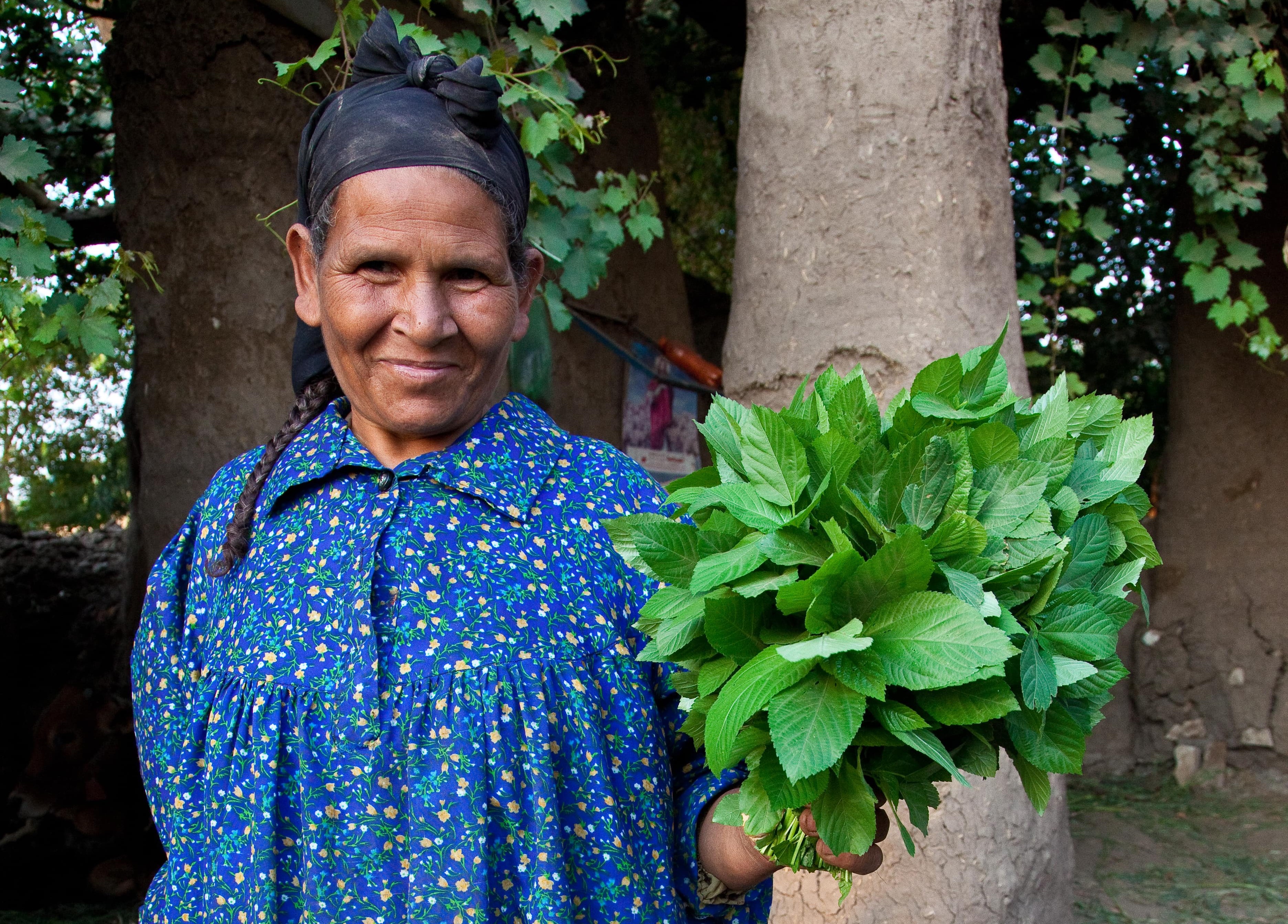
A smiling widowed mother holds molokheya.
Baseeta (Arabic for “as simple as that”) is Coptic Orphans’ new, unique initiative to provide over 8,000 widowed mothers with financial inclusion. Baseeta will amplify the skills they need to harness opportunities offered by the fast-arriving digital economy. That means more women will have access to microfinancing, mobile money, bank accounts, and other financial services.
The level of financial inclusion in the Middle East and North Africa (MENA) is among the lowest globally, standing at 29% overall, and 24.5% among women. Many women in Egypt, especially poor women, do not participate in the formal financial system. Only 9.3% of women are banked compared to 19% of men. Low levels of financial literacy, coupled with the fact that many women—particularly in rural areas—do not have a national ID, make it difficult for them to access formal financial services.
It’s not surprising that Egyptian women account for only 10% to 20% of bank borrowers. Increasing financial inclusion for women in the formal financial system is essential to their economic empowerment.
Since the adoption of the National Strategy for the Empowerment of Egyptian Women 2030, Egypt has taken wide strides to promote financial inclusion and economic empowerment for women. One example of such efforts is the signing of a memorandum of understanding between the Central Bank of Egypt and the National Council for Women. This initiative will raise women’s saving rates, encourage their entrepreneurship by boosting their access to banking services, and increase financial awareness among female school and university students.
This is where Baseeta steps in. Baseeta will allow Coptic Orphans’ widowed mothers to take advantage of government policy initiatives and economic change in three areas.
First, it will assist the 93% of widows who currently do not have a bank account to open an account, thus paving the way to receiving the benefits and services offered in the digital economy. Second, it will educate mothers on financial literacy and how to increase their savings and skillfully manage micro-loans. Third, Baseeta will contribute positively towards generational change by training mothers on how to model sound financial judgement and communicate financial literacy to their children.
Baseeta will bring all of Coptic Orphans’ widowed mothers into the 21st century. By making the female heads of households fully capable of managing mobile money, opening bank accounts, and handling other financial fundamentals, they will have taken the first giant step to lift themselves and their families out of poverty.
